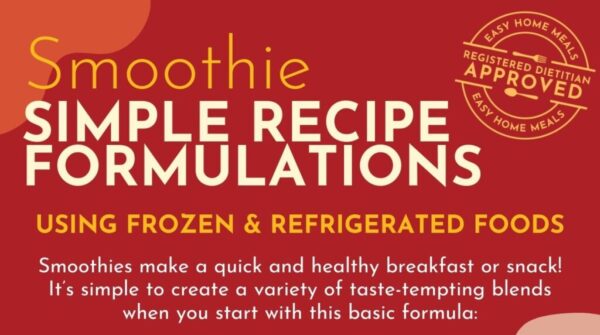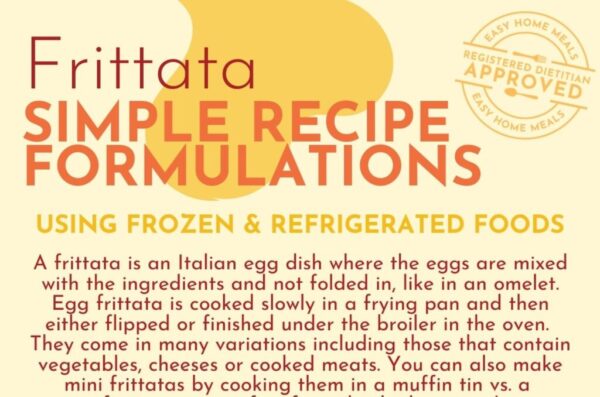Food Safety and COVID-19
From the U.S. Food & Drug Administration
Currently, there is no evidence of food or food packaging being associated with transmission of COVID-19.
Foodborne gastrointestinal (GI) viruses, like norovirus and hepatitis A, can make people ill through contaminated food. SARS-CoV-2, which causes COVID-19, is a virus that causes respiratory illness.
FDA advises we all adopt everyday safe food handling and hygiene practices to avoid foodborne illness:
- Safe Food Handling
- Food Safety in Your Kitchen
- Everyday Food Safety for Young Adults
- Handling Flour Safely
- Tips to Reduce Food Waste
Food Safety and Availability During the Coronavirus Pandemic
The U.S. Food and Drug Administration is working in many ways to help keep people safe while the nation is coping with the coronavirus pandemic (COVID-19). Food availability and food safety are vitally important to our well-being, and the FDA is working hard to help ensure the foods you, your family, and your pets eat are safe and available.
Here are three things to know about food availability and safety as the nation copes with the pandemic.
Q: Is the U.S. food supply safe?
Currently there is no evidence of food or food packaging being associated with the transmission of the coronavirus.
It’s important to recognize that unlike foodborne gastrointestinal (GI, or stomach-related) viruses that often make people ill through contaminated food, coronavirus is a virus that causes respiratory (breathing-related) illness.
The virus is thought to spread mainly from person-to-person. This includes between people who are in close contact with one another (within about 6 feet), and through respiratory droplets produced when an infected person coughs or sneezes. It may be possible that a person can get COVID-19 by touching a surface or object that has the virus on it and then touching their mouth, nose, or possibly their eyes, but we don’t think this is the main way the virus spreads at this time.
Regardless, it’s always critical to follow the four key steps of food safety (clean, separate, cook, and chill) to prevent foodborne illness. It’s also important to wash your hands frequently, including right before preparing and eating food and after preparing pet food.
Q: Are there any food shortages?
Many consumers report going to their neighborhood grocery store and seeing shelves empty of certain items. There are currently no nationwide shortages of food, for people or pets, although in some cases you may find that certain foods at your grocery store are temporarily out of stock. This is mostly because customers are buying more than usual, and not because there is less food.
For this reason, we want to remind you that there is no need to buy several months’ worth of food. The retail food industry is suggesting that we purchase enough food for a week or two at a time, and manufacturers and stores are working hard every day to restock what we all need.
The FDA is working with the White House, the U.S. Departments of Agriculture (USDA) and the Department of Homeland Security, and state and international regulatory partners to stay abreast of any impact on food access for the American people.
Q: What measures is the government taking to ensure that we remain able to address foodborne illness outbreaks during the COVID-19 pandemic?
With respect to foodborne pathogens (e.g., Salmonella, E. coli O157:H7, or Hepatitis A), the Centers for Disease Control and Prevention, the FDA, and the USDA Food Safety and Inspection Service continue to work with state and local partners to investigate foodborne illnesses and outbreaks. More specifically, the CDC continues to lead and coordinate investigations of multistate foodborne events, consult with states as needed on events within a single state, and work closely with FDA investigators and others so that contaminated foods are traced back to their sources and controlled.
The FDA manages outbreak responses and activities related to incidents involving multiple illnesses linked to FDA-regulated human foods and other products. (These include dietary supplements and cosmetic products.) During this pandemic, the FDA will continue to prepare for, coordinate, and carry out response activities related to incidents of foodborne illness.
The FDA also manages responses to outbreaks associated with animal food. Staff continue to stand ready to respond to incidents of foodborne illness in animals.
Coronavirus Disease 2019 (COVID-19) Frequently Asked Questions
Q: Can I get the coronavirus from food, food packaging, or food containers and preparation area?
A: Currently there is no evidence of food, food containers, or food packaging being associated with transmission of COVID-19. Like other viruses, it is possible that the virus that causes COVID-19 can survive on surfaces or objects. For that reason, it is critical to follow the 4 key steps of food safety—clean, separate, cook, and chill.
If you are concerned about contamination of food or food packaging, wash your hands after handling food packaging, after removing food from the packaging, before you prepare food for eating and before you eat. Consumers can follow CDC guidelines on frequent hand washing with soap and water for at least 20 seconds; and frequent cleaning and disinfecting of surfaces.
Q: Will there be food shortages?
A: There are no nationwide shortages of food, although in some cases the inventory of certain foods at your grocery store might be temporarily low before stores can restock. Food production and manufacturing are widely dispersed throughout the U.S. and there are currently no widespread disruptions reported in the supply chain.
FDA is closely monitoring the food supply chain for any shortages in collaboration with industry and our federal and state partners. We are in regular contact with food manufacturers and grocery stores.
Q: Can I get COVID-19 from a food worker handling my food?
A: Currently, there is no evidence of food or food packaging being associated with transmission of COVID-19. However, the virus that causes COVID-19 is spreading from person-to-person in some communities in the U.S. The CDC recommends that if you are sick, stay home until you are better and no longer pose a risk of infecting others.
Anyone handling, preparing and serving food should always follow safe food handling procedures, such as washing hands and surfaces often.
Three Things You and Your Family Can Do to Help Stay Safe
- Buy enough food for a week or two at a time. Avoid close contact with others (within about 6 feet) when shopping.
- Get in the habit of washing your hands often, including before and after preparing meals, before eating all meals, and after you come home if you have gone out.
- There is a lot of false information online about the pandemic. You should rely on credible, accurate sources such as the FDA, CDC, and USDA.






